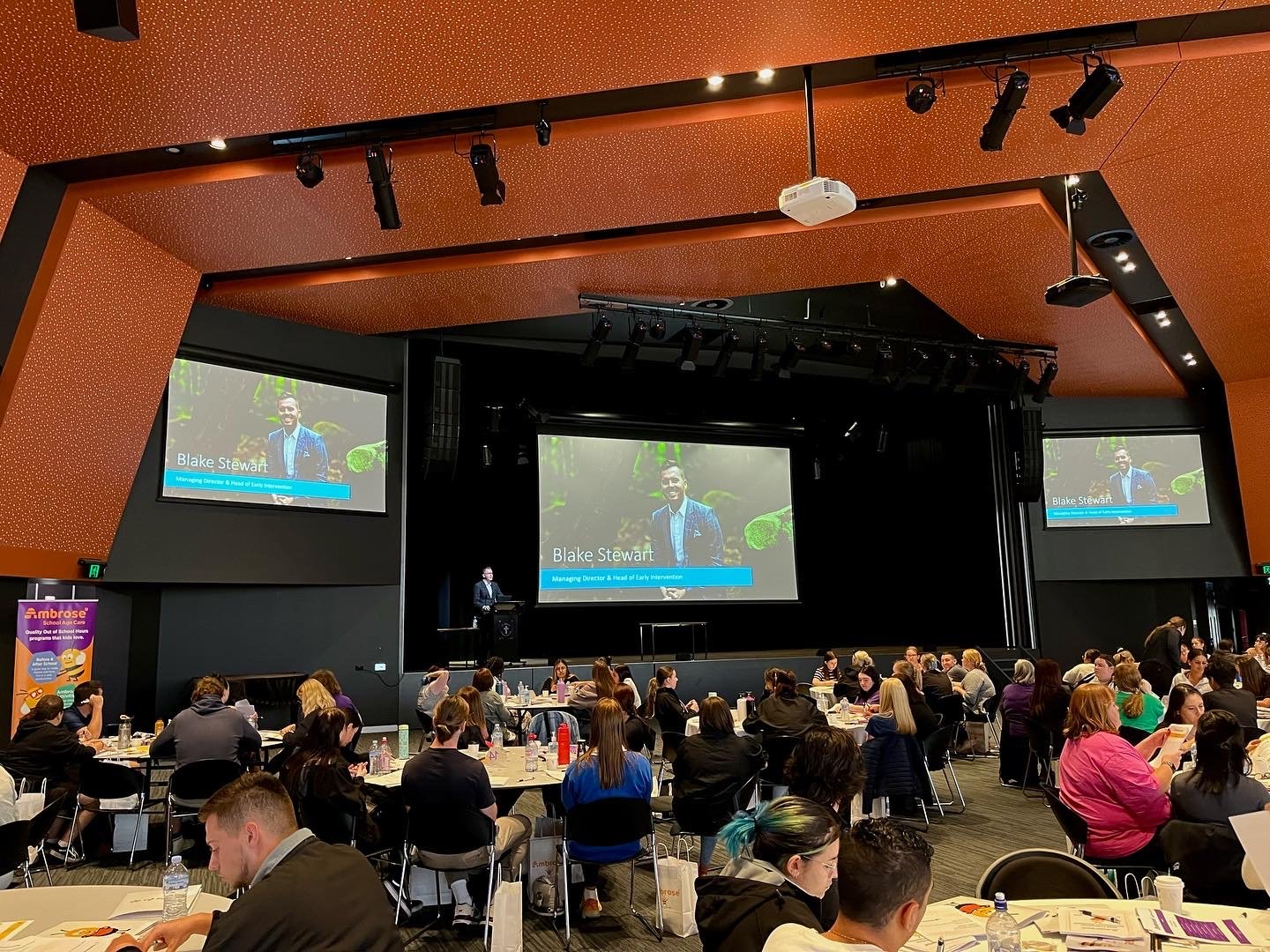
Training & Consultancy
Professional Development Topics Include:
Managing Children’s Needs Through Inclusive Practices (2 hours)
During this session, educators and teachers will gain a deeper understanding of the principles and practices of inclusion in early childhood education. Participants will explore the importance of promoting and supporting communication, language understanding, behavior, and social success for all children in the service. The session will provide opportunities for reflection and the development of a strategic inclusion plan, as well as a toolbox of skills and strategies to implement in the learning environment to support the inclusion of all children.
Supporting Children with Sensory Processing (2 hours)
During this session, attendees will gain a comprehensive understanding of the physiological response of the body to sensory stimuli, including the process of sensory input and its impact on behavior. Through a thorough examination of various sensory strategies, attendees will gain the knowledge and skills to effectively support children with Sensory Processing Difficulties. Additionally, attendees will be empowered to apply strategies that foster inclusion for all children within the educational setting.
Reflect, Reframe, Refocus - Understanding how trauma can impact behaviours and how to support.*
In this first workshop, we will discuss past trauma can leading to children displaying behaviours that you misunderstand or may find challenging. We will be learning how to make sense of the behaviours and how to effectively support through these behaviours and emotions. You will learn how to reflect on and repair relationships in the home.
In this second workshop, we will be discussing the ripple effects of these behaviours on staff, other children, and community members. You will leave this workshop with a toolbox of strategies to support your community.
* (2 session workshop or a full day)
How can I help the children in my class to say the sounds they cannot produce? (2 hours)
This session aims to provide educators with practical strategies to support the development of speech and language skills in children in their classrooms. Attendees will learn about the common speech sound errors in young children and how to effectively address them through targeted pre-reading instruction. This session will also explore the link between speech and language difficulties and reading disorders, and the importance of early intervention in mitigating these risks. By the end of the session, educators will be equipped with the knowledge and tools necessary to support the development of speech and language skills in their students, ultimately promoting academic success and positive life outcomes.
Jenny attended our staff professional development day to provide training on recognising a range of speech disorders and implementing speech screeners with children. We found this session to be very informative, providing us with valuable insights and tools into identifying speech disorders and how to support children and their families. We would highly recommend this professional development training as all early childhood education services would benefit from this service!
— Tarryn Bunt, Koninderie Community Based Preschool.
Our Speech pathologists and Early Intervention Teachers play many roles supporting the development of speech, language, communication, social, emotional, literacy and numeracy skills of early childhood, primary and secondary students. Their roles include screening, assessing, advocating, and designing support plans in addition to providing direct intervention with students and indirect roles of consulting, coaching, collaborating, team teaching and training teachers and families. It is essential that there we have a shared teaching philosophy between you as the school/ Early Childhood Education (ECE) service and the allied health practitioners that support an integrated early intervention model, provide systematic, intense, and evidence-based prevention/intervention, and that all students can benefit.Allied Health Clinic in Preschool / Schools
Hear about how we can support your School or Early Learning Service.
Collaborative Partnerships
The key components for establishing collaborative partnerships with a school / ECE service in the delivery of services to students with speech, language and communication needs are:• establishing an interdisciplinary approach to working with teachers and educators;• demonstrating that a collaborative working relationship between the practitioner and the school will be of value to student learning and developmental outcomes;• ensuring that the service delivery model is supported by teacher engagement;• providing collaborative in-service training and coaching; and• It is important to note the practitioner and teacher can co-teach the students in a classroom. Lessons can be divided into teachable segments, or the class can be divided into groups with each group receiving exposure to similar content or one group led by the speech pathologist receiving more support in the language area.Teacher-allied health practitioners’ partnerships are strengthened when both individuals have attended professional development integrating allied health expertise, with knowledge about educational pedagogies and the curriculum, and have the opportunities to discuss and apply this information in their own professional settings.This approach requires collaboration at many levels, including assessment, goal-setting, planning, and implementation of intervention for students with additional needs as well as for students who are at risk. By working together, an effective practitioner–teacher collaboration has the potential to support more students more effectively in the learning environment and lead to better student outcomes.The teacher–practitioner team identifies concerns regarding student performance for both identified students and total classroom needs. By establishing collaborative concerns, the team can determine relevant curricular and developmental goals for the whole class or with individual students and their families. It is imperative that a collaborative team avoidplanning activities before establishing the goals they wish to achieve.





